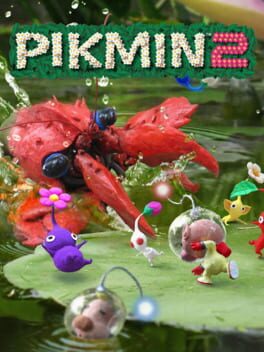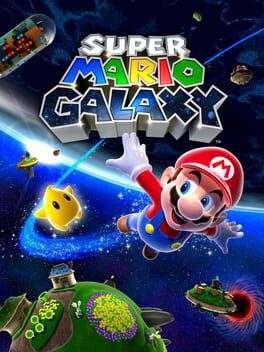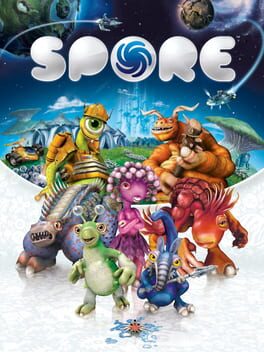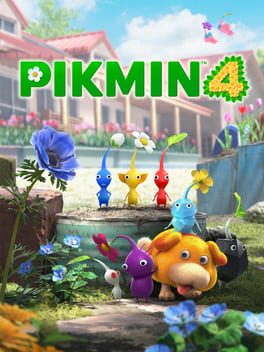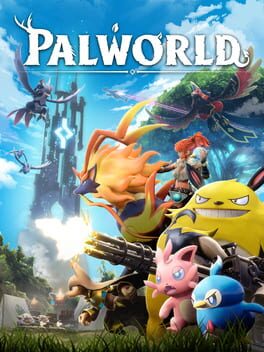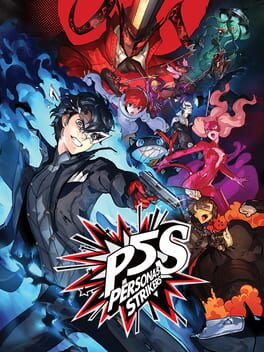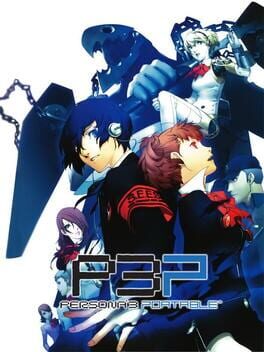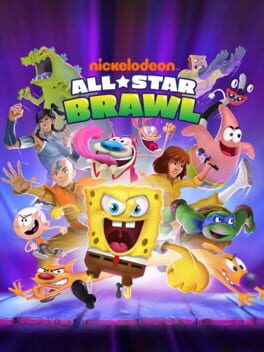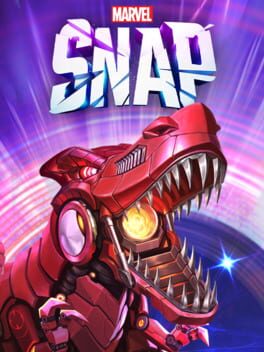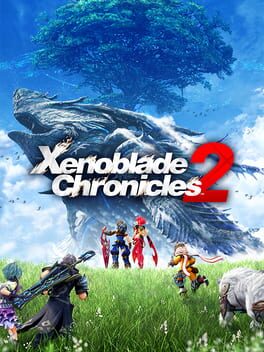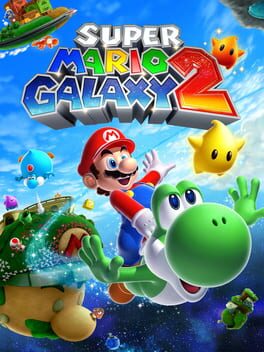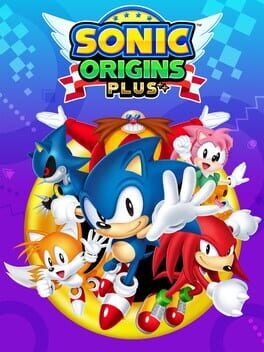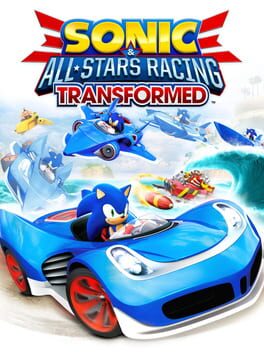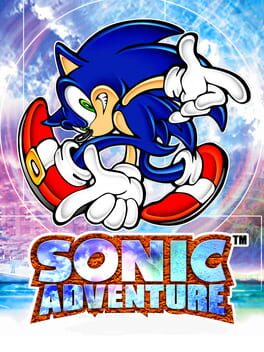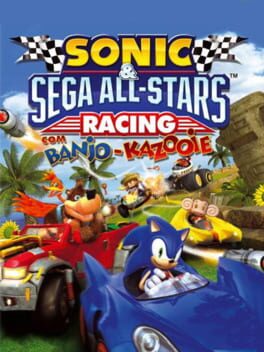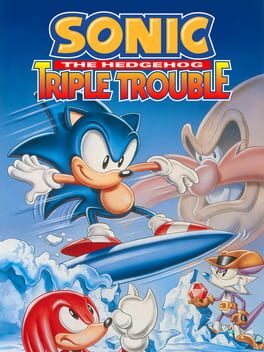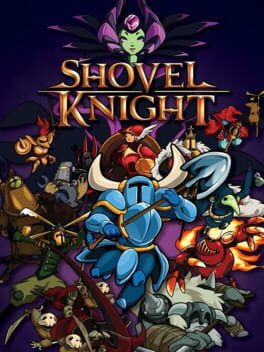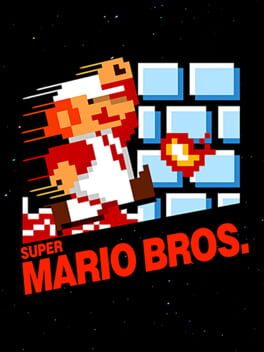timrtabor123
120 reviews liked by timrtabor123
Pikmin 2
2004
As a follow-up to Pikmin 1, Pikmin 2 makes an incredibly strong statement. And that statement is "we know that we're spreading ourselves thin between score attack-style survivalist gameplay and slow-burn exploration and worldbuilding, so we've destroyed the worldbuilding and put it in a little book and now the game is all about not dying in caves". It's a change that honestly the Pikmin series probably needed to take in one direction or the other, and the game commits to its more arcade-style gameplay fairly well! Without having to worry about navigating a more complex terrain in favor of labyrinths, control of the Pikmin generally feels a lot more consistent, combat challenges can be placed in a player's way methodically and deliberately, and overall the spikes in difficulty and memorable moments are a lot more controlled than in Pikmin 1. Unfortunately, the very limited exploration offered from seeing Pikmin 1 environments change does end up feeling very rote and obligatory by comparison, which makes a lot of the game's opening stretch seem pretty performatory; Pikmin 2 can't be mean enough in its opening to really grit its teeth due to needing to reteach Pikmin 1's mechanics and introduce its new ones. Additionally, returning bosses like the Burrowing Snagret, Beady Long Legs and Emperor Bulblax are shadows of their former selves due to appearing at the end of dungeons where a player can't be assured to have a full squad like Pikmin 1, creating this really unfortunate deflating feeling after clearing the first game. I'd cleared the debt and was ready to write the game off as a technically superior, but ultimately short-sighted version of Pikmin 1.
Then the Water Wraith happened.
I cannot tell you how wonderful of a turning point the Water Wraith is. Every cave up to that point (discounting backtracking to the first area's harder dungeons) could be handled with just a simple measure of patience, with taking things slowly, step by step, and throwing the right colored Pikmin at the thing they're good at stopping. Water Wraith takes every bit of that away from you, demands you scramble, puts you in the position to make mistakes, has no weaknesses for a majority of its dungeon. This is Pikmin 2 at its best: throwing you into cruel situations where one lapse in attention or assuming that your little guys will be fine will end up with a squad crushed, exploded, or eaten by a jumpscare of a bomb rock or bulbear. Where the first game had you try to figure out how to solve each creature individually, Pikmin 2 is glad to mingle its enemies together, forcing you into incredibly uncomfortable situations to try and keep your most precious fellas alive, cursing the name of the Dirigibug or anything that happens to shoot lightning as they attempt to one-shot your lil' boy army. Bosses take a significant step up, with Man-At-Legs being an especially fantastic upgrade of needing to figure out spacial awareness, positioning, and just how fast your Pikmin can duck into cover to avoid machine gun fire. The midgame of Pikmin 2 is absolutely exhilerating in attempting to expect its cruelty and react.
... and unfortunately the endgame is where Pikmin 2's flaws become most apparent. The caves that you delve into are somewhat randomly generated, with layouts tending to be similar, but a lot of enemy placements and exit placements in those rooms being random. This leads to a lot of scenarios that aren't so much difficult, but unfun, especially if something REAL dangerous like a groink or bulbear spawns directly outside your starting area and leaves you little time to react. I do think the game is significantly more fun not resetting or leaving caves, just trying to do your best with the limited resources you have (I actually managed to beat Submerged Castle on the back of seven total Pikmin remaining, and it was an absolute blast maneuvering that!), but I'll admit it's not the optimal way to play the game compared to resetting. Sitting there watching your 'min get blown over and over again because the blowy man is behind a wall you need to break while a snitchbug takes swipes every so often is hardly a fun time, and these kinds of scenarios are abundant the further you get into Pikmin 2. Add in things like bomb hitboxes extending through walls with no real indication, cutscenes for items interrupting gameplay, and treasures sometimes glitching out if at a bad angle, and Pikmin 2 ends up an experience as unintentionally frustrating as it is intentionally.
Overall, Pikmin 2 is my favored Pikmin game of the Gamecube duology. It's a wildly inconsistent game, but its peaks are utterly fantastic, its writing some of the best on the system even though it's tucked away in its own little section, and the moments it creates as you barely make it through a tough challenge or scenario are legendary. I will never forget sending my army of Pikmin to gank the Empress Bulblax while the President of Hotocate Freight personally punched out an army of her spawn with his bare hands until they could all mob her face and guarantee a win, or slowly tricking Dweevils into getting a stack up disc out of the water because I lost all my Blue Pikmin. It is not the ideal sequel to its original game, and has to sacrifice a lot to make its own fun, but what it does uniquely it does superbly, and there's a stretch of about eight hours of game in here that's utterly incredible. The other surrounding eight hour chunks on either side are still pretty good, too, just with their very obvious drawbacks!
Olimar should not dump his wife for a cool marble, though. That's weird, Olimar.
Then the Water Wraith happened.
I cannot tell you how wonderful of a turning point the Water Wraith is. Every cave up to that point (discounting backtracking to the first area's harder dungeons) could be handled with just a simple measure of patience, with taking things slowly, step by step, and throwing the right colored Pikmin at the thing they're good at stopping. Water Wraith takes every bit of that away from you, demands you scramble, puts you in the position to make mistakes, has no weaknesses for a majority of its dungeon. This is Pikmin 2 at its best: throwing you into cruel situations where one lapse in attention or assuming that your little guys will be fine will end up with a squad crushed, exploded, or eaten by a jumpscare of a bomb rock or bulbear. Where the first game had you try to figure out how to solve each creature individually, Pikmin 2 is glad to mingle its enemies together, forcing you into incredibly uncomfortable situations to try and keep your most precious fellas alive, cursing the name of the Dirigibug or anything that happens to shoot lightning as they attempt to one-shot your lil' boy army. Bosses take a significant step up, with Man-At-Legs being an especially fantastic upgrade of needing to figure out spacial awareness, positioning, and just how fast your Pikmin can duck into cover to avoid machine gun fire. The midgame of Pikmin 2 is absolutely exhilerating in attempting to expect its cruelty and react.
... and unfortunately the endgame is where Pikmin 2's flaws become most apparent. The caves that you delve into are somewhat randomly generated, with layouts tending to be similar, but a lot of enemy placements and exit placements in those rooms being random. This leads to a lot of scenarios that aren't so much difficult, but unfun, especially if something REAL dangerous like a groink or bulbear spawns directly outside your starting area and leaves you little time to react. I do think the game is significantly more fun not resetting or leaving caves, just trying to do your best with the limited resources you have (I actually managed to beat Submerged Castle on the back of seven total Pikmin remaining, and it was an absolute blast maneuvering that!), but I'll admit it's not the optimal way to play the game compared to resetting. Sitting there watching your 'min get blown over and over again because the blowy man is behind a wall you need to break while a snitchbug takes swipes every so often is hardly a fun time, and these kinds of scenarios are abundant the further you get into Pikmin 2. Add in things like bomb hitboxes extending through walls with no real indication, cutscenes for items interrupting gameplay, and treasures sometimes glitching out if at a bad angle, and Pikmin 2 ends up an experience as unintentionally frustrating as it is intentionally.
Overall, Pikmin 2 is my favored Pikmin game of the Gamecube duology. It's a wildly inconsistent game, but its peaks are utterly fantastic, its writing some of the best on the system even though it's tucked away in its own little section, and the moments it creates as you barely make it through a tough challenge or scenario are legendary. I will never forget sending my army of Pikmin to gank the Empress Bulblax while the President of Hotocate Freight personally punched out an army of her spawn with his bare hands until they could all mob her face and guarantee a win, or slowly tricking Dweevils into getting a stack up disc out of the water because I lost all my Blue Pikmin. It is not the ideal sequel to its original game, and has to sacrifice a lot to make its own fun, but what it does uniquely it does superbly, and there's a stretch of about eight hours of game in here that's utterly incredible. The other surrounding eight hour chunks on either side are still pretty good, too, just with their very obvious drawbacks!
Olimar should not dump his wife for a cool marble, though. That's weird, Olimar.
Super Mario Galaxy
2007
Super Mario Galaxy is the game that made me love video games.
It wasn’t the first game I played, or even the first Mario game (that honor goes to Mario Kart Wii), but it was the first to make me see games as an art form. It’s been over 15 years since I first sat down to play it at the tender age of 4 years old, but that first play session is burned into my brain. The transition from a quiet, somber storybook into a joyous festival instantly invokes a sense of childlike wonder and turns the remotely interested into the completely invested. Then, Bowser’s attack on the Star Festival and Mario’s defeat lets veteran Mario players know this adventure will be something special, while also making the basic elements of Mario clear to new players.
Speaking of basic elements, Gateway Galaxy is a fantastic tutorial. The Star Bunny segment seamlessly introduces the game’s gravity mechanic, as well as the concepts of bushes, pipes, and craters. Rosalina’s introduction introduces a sense of mystery and quiet contemplation, and the next few planets establish the game’s phenomenal sense of epic adventure and even more gameplay elements: spinning, crystals, Launch Stars, Star Bits, enemies, Black Holes, Star Chips, Flip Switches, and electricity. And all this culminates in the rescue of the Grand Star, giving 4-year-old willn46 his first chance to save the universe and make it back home to the beautiful Comet Observatory.
But even beyond its importance to me, Mario Galaxy is simply an incredible 3D platformer. Right from the outset, Mario controls like a dream. Every input is immediately taken into account, with jumps, ground pounds, and everything in between being perfectly tuned to just feel good to use. But I’d be remiss not to mention the crown jewel of Mario’s moveset: the Spin Move. Not only is it a fantastic use of the Wii’s motion controls that feels both significant and unobtrusive (unless you have a disability that renders the controls unusable for you, in which case I am incredibly sorry), it’s also an incredibly versatile tool that’s easy to use, but has nearly limitless potential. First and foremost, the momentum-halting midair jump lets players easily recover from mistakes and adjust their positioning on the fly, giving newer players a safety net that eases them in to platforming in a 3D space. Additionally, the extra jump is great for getting places that seem just out of reach, horizontally or vertically, enabling the game to set up interesting platforming challenges and fun opportunities to skip past sections if the player is good enough. But the Spin Move isn’t just for platforming; it’s also the player’s primary means of interaction with the game. It’s used to defeat enemies, break objects, collect shells, swim faster, and so much more, and every interaction is completely intuitive (Ceave Gaming has a great video on this exact topic).
I’ve seen some people criticize the Galaxy games for not having as much movement tech as other 3D Mario games. While, yes, the movement here is much simpler than 64, Sunshine or Odyssey, I actually think it works to the game’s benefit. Not only is it much easier to learn, requiring the player to understand a few basic moves rather than a plethora of complex maneuvers, but the more limited moveset lets the game be carried entirely by its level design.
And said level design is top-notch. Like 64 and Sunshine before it, Galaxy spreads its 120 stars across multiple worlds for the plumber to tackle. But it trades their handful of levels holding a few collectibles for a supercluster of memorable locales, each one bearing a unique mechanical, visual and auditory identity. Fully committing to Sunshine’s separation of individual objectives lets the designers get the most out of a single Galaxy by introducing multiple ideas while still maintaining the level’s core themes, and splitting up the action across multiple planets allows for great variety within missions as well as between them. Plus, the introduction of mid-level checkpoints allows for longer levels that don’t feel like they drag on and gives the designers more time to play with a level’s gimmicks. The more linear level design even means the game’s limited camera rarely feels limiting. And the generous amount of Power Stars gives players plenty of freedom in choosing which levels to tackle.
This would all mean nothing if the levels themselves were boring, but luckily they couldn’t be further from that. Galaxy takes basic level tropes like Ice, Beach, and Desert levels and pushes them to their absolute limits: combining ice and fire mechanics in a lava-skating course, hiding the path to a deadly obstacle course behind an underwater cave, and navigating sand streams and tornadoes across an ocean of quicksand. And that’s not even mentioning the more original levels, like HoneyHive Galaxy, BattleRock Galaxy, or Toy Time Galaxy. Besides a few stinkers like the ball-rolling levels and some of the race levels, the level mechanics on display are consistently excellent in a way I think is only matched by this game's own sequel. Interesting obstacles like altered gravity, throwing Bob-Ombs, and launching from Sling Pods are expertly paced and explored to the fullest. Cool enemies like spinning tops, bugs that need to be ground-pounded, and giant eels combined with interesting spins on classic enemies like Goombas and Boos work wonders both from a mechanical and aesthetic standpoint. Plus the bosses are great tests of skill, utilizing a level’s mechanics in their battles on top of being tests of basic skill. Power ups are pretty fun too (besides the spring), with their own unique attributes, interactions with level gimmicks, and hazards to deal with.
And do I even need to mention the visuals and music? The artstyle is vibrant, yet the locales are consistently stunning, with great attention to detail both in the actual levels and in background elements. The character designs are excellent, both with how returning characters look and how the new characters perfectly fit in with Mario while still standing out. Plus, there are tons of cool little details and secret areas that, while they may be a little pointless, give the levels tons of personality. But even more impressive is the game’s music. The confident, orchestral themes give the game an almost cinematic feel, and yet each one perfectly fits within the level and the Mario series. There are so many standout pieces in this regard, like Good Egg Galaxy, BattleRock Galaxy, and Buoy Base Galaxy. However, the game also knows when to be more subdued and reflective, with pieces like Space Junk Galaxy and Gateway Galaxy.
And on that note…besides sparking my love of video games, there’s another reason this game means so much to me.
Back in late 2016, I made some mistakes. The details are personal, but long story short, I was a stupid 12-year-old who took his friends for granted and ended up losing them all. And for the entire month of November, going to school was absolute Hell for me because of it. In every class, I would argue with people, get teased, or get laughed at, and since a lot of it was my fault, I didn’t want to ask any teachers or my parents for help. Luckily, Thanksgiving Break rolled around eventually, and I was home safe. But at this point I realized something horrible: I had no one to turn to. All my friends left me because of my egotism, and my parents wouldn’t understand enough to help me. For that entire week, I was more or less left to think about my actions, angry at myself and at the people who hurt me. I didn’t know if I could go on, and before long, my mind went to some…dark places.
Then, on Sunday, the day before I had to go back to school, I thought I would boot up Mario Galaxy so I could at least have a little fun. I played around a little, going through some of my favorite levels, not really accomplishing much. But I enjoyed it. The game didn’t judge me. It didn’t try to hurt me. It didn’t care what I did. It was just there for me, and it was there to make me happy.
And…suddenly, I wasn’t alone anymore.
Not only did that moment save my life, not only did it bring me out of the hole I dug for myself, but it made me realize the true power of a good video game. Some people might say video games are silly little things, that they’re hunks of digital junk to give to a kid so they’ll shut up for a bit. But I think they’re more than that. Like any form of art, they can lift a person up, give them a new perspective on life, and help them move forward even when nobody else will. That moment is why I wanted to become a game designer. Because I wanted to help someone feel like someone cared for them, the same way Super Mario Galaxy helped me. Sometimes, when you’re feeling hopeless, that’s the only message you need to hear:
“Thank you so much for playing my game.”
It wasn’t the first game I played, or even the first Mario game (that honor goes to Mario Kart Wii), but it was the first to make me see games as an art form. It’s been over 15 years since I first sat down to play it at the tender age of 4 years old, but that first play session is burned into my brain. The transition from a quiet, somber storybook into a joyous festival instantly invokes a sense of childlike wonder and turns the remotely interested into the completely invested. Then, Bowser’s attack on the Star Festival and Mario’s defeat lets veteran Mario players know this adventure will be something special, while also making the basic elements of Mario clear to new players.
Speaking of basic elements, Gateway Galaxy is a fantastic tutorial. The Star Bunny segment seamlessly introduces the game’s gravity mechanic, as well as the concepts of bushes, pipes, and craters. Rosalina’s introduction introduces a sense of mystery and quiet contemplation, and the next few planets establish the game’s phenomenal sense of epic adventure and even more gameplay elements: spinning, crystals, Launch Stars, Star Bits, enemies, Black Holes, Star Chips, Flip Switches, and electricity. And all this culminates in the rescue of the Grand Star, giving 4-year-old willn46 his first chance to save the universe and make it back home to the beautiful Comet Observatory.
But even beyond its importance to me, Mario Galaxy is simply an incredible 3D platformer. Right from the outset, Mario controls like a dream. Every input is immediately taken into account, with jumps, ground pounds, and everything in between being perfectly tuned to just feel good to use. But I’d be remiss not to mention the crown jewel of Mario’s moveset: the Spin Move. Not only is it a fantastic use of the Wii’s motion controls that feels both significant and unobtrusive (unless you have a disability that renders the controls unusable for you, in which case I am incredibly sorry), it’s also an incredibly versatile tool that’s easy to use, but has nearly limitless potential. First and foremost, the momentum-halting midair jump lets players easily recover from mistakes and adjust their positioning on the fly, giving newer players a safety net that eases them in to platforming in a 3D space. Additionally, the extra jump is great for getting places that seem just out of reach, horizontally or vertically, enabling the game to set up interesting platforming challenges and fun opportunities to skip past sections if the player is good enough. But the Spin Move isn’t just for platforming; it’s also the player’s primary means of interaction with the game. It’s used to defeat enemies, break objects, collect shells, swim faster, and so much more, and every interaction is completely intuitive (Ceave Gaming has a great video on this exact topic).
I’ve seen some people criticize the Galaxy games for not having as much movement tech as other 3D Mario games. While, yes, the movement here is much simpler than 64, Sunshine or Odyssey, I actually think it works to the game’s benefit. Not only is it much easier to learn, requiring the player to understand a few basic moves rather than a plethora of complex maneuvers, but the more limited moveset lets the game be carried entirely by its level design.
And said level design is top-notch. Like 64 and Sunshine before it, Galaxy spreads its 120 stars across multiple worlds for the plumber to tackle. But it trades their handful of levels holding a few collectibles for a supercluster of memorable locales, each one bearing a unique mechanical, visual and auditory identity. Fully committing to Sunshine’s separation of individual objectives lets the designers get the most out of a single Galaxy by introducing multiple ideas while still maintaining the level’s core themes, and splitting up the action across multiple planets allows for great variety within missions as well as between them. Plus, the introduction of mid-level checkpoints allows for longer levels that don’t feel like they drag on and gives the designers more time to play with a level’s gimmicks. The more linear level design even means the game’s limited camera rarely feels limiting. And the generous amount of Power Stars gives players plenty of freedom in choosing which levels to tackle.
This would all mean nothing if the levels themselves were boring, but luckily they couldn’t be further from that. Galaxy takes basic level tropes like Ice, Beach, and Desert levels and pushes them to their absolute limits: combining ice and fire mechanics in a lava-skating course, hiding the path to a deadly obstacle course behind an underwater cave, and navigating sand streams and tornadoes across an ocean of quicksand. And that’s not even mentioning the more original levels, like HoneyHive Galaxy, BattleRock Galaxy, or Toy Time Galaxy. Besides a few stinkers like the ball-rolling levels and some of the race levels, the level mechanics on display are consistently excellent in a way I think is only matched by this game's own sequel. Interesting obstacles like altered gravity, throwing Bob-Ombs, and launching from Sling Pods are expertly paced and explored to the fullest. Cool enemies like spinning tops, bugs that need to be ground-pounded, and giant eels combined with interesting spins on classic enemies like Goombas and Boos work wonders both from a mechanical and aesthetic standpoint. Plus the bosses are great tests of skill, utilizing a level’s mechanics in their battles on top of being tests of basic skill. Power ups are pretty fun too (besides the spring), with their own unique attributes, interactions with level gimmicks, and hazards to deal with.
And do I even need to mention the visuals and music? The artstyle is vibrant, yet the locales are consistently stunning, with great attention to detail both in the actual levels and in background elements. The character designs are excellent, both with how returning characters look and how the new characters perfectly fit in with Mario while still standing out. Plus, there are tons of cool little details and secret areas that, while they may be a little pointless, give the levels tons of personality. But even more impressive is the game’s music. The confident, orchestral themes give the game an almost cinematic feel, and yet each one perfectly fits within the level and the Mario series. There are so many standout pieces in this regard, like Good Egg Galaxy, BattleRock Galaxy, and Buoy Base Galaxy. However, the game also knows when to be more subdued and reflective, with pieces like Space Junk Galaxy and Gateway Galaxy.
And on that note…besides sparking my love of video games, there’s another reason this game means so much to me.
Back in late 2016, I made some mistakes. The details are personal, but long story short, I was a stupid 12-year-old who took his friends for granted and ended up losing them all. And for the entire month of November, going to school was absolute Hell for me because of it. In every class, I would argue with people, get teased, or get laughed at, and since a lot of it was my fault, I didn’t want to ask any teachers or my parents for help. Luckily, Thanksgiving Break rolled around eventually, and I was home safe. But at this point I realized something horrible: I had no one to turn to. All my friends left me because of my egotism, and my parents wouldn’t understand enough to help me. For that entire week, I was more or less left to think about my actions, angry at myself and at the people who hurt me. I didn’t know if I could go on, and before long, my mind went to some…dark places.
Then, on Sunday, the day before I had to go back to school, I thought I would boot up Mario Galaxy so I could at least have a little fun. I played around a little, going through some of my favorite levels, not really accomplishing much. But I enjoyed it. The game didn’t judge me. It didn’t try to hurt me. It didn’t care what I did. It was just there for me, and it was there to make me happy.
And…suddenly, I wasn’t alone anymore.
Not only did that moment save my life, not only did it bring me out of the hole I dug for myself, but it made me realize the true power of a good video game. Some people might say video games are silly little things, that they’re hunks of digital junk to give to a kid so they’ll shut up for a bit. But I think they’re more than that. Like any form of art, they can lift a person up, give them a new perspective on life, and help them move forward even when nobody else will. That moment is why I wanted to become a game designer. Because I wanted to help someone feel like someone cared for them, the same way Super Mario Galaxy helped me. Sometimes, when you’re feeling hopeless, that’s the only message you need to hear:
“Thank you so much for playing my game.”
Spore
2008
Finished it again. Just like the last thousand times. Now I tried installing countless mods. Game crashes so much.
Note: Don't install the mod named "YourMom". It just turns every text in the game to "Your Mom".
So, if you are looking to spice up your Spore experience, you don't have to put yourself through the agony of installing countless mods you don't know, like I did. Just install dark injection, auto save and some graphic patches, and tweak some game files to skip the intro and unlock your FPS. On top of it all, install Reshade and you have the ultimate Spore experience.
Note: Don't install the mod named "YourMom". It just turns every text in the game to "Your Mom".
So, if you are looking to spice up your Spore experience, you don't have to put yourself through the agony of installing countless mods you don't know, like I did. Just install dark injection, auto save and some graphic patches, and tweak some game files to skip the intro and unlock your FPS. On top of it all, install Reshade and you have the ultimate Spore experience.
Pikmin 4
2023
Pros:
- Visuals and sound are great
- Oatchi is a great addition that brilliantly expands upon the series' core mechanics
- The levels are fantastic, excelling in both quality and quantity of content
- The caves are greatly improved from Pikmin 2, with much more memorable designs and better pacing
- Incorporating the side modes into the main levels was a great idea executed very well
- Phenomenal roster of enemies and bosses
- The in-between day segments are neat. I love having access to all the different upgrade services
- Story is cute
- The custom character maker is cool
Cons:
- 3 Deluxe controlled better. I also had this issue with the 1+2 collection but I prefer having motion aiming always active, not just when holding A or B. Also, auto-lock-on is a bit annoying.
- I miss the Co-Op from 3 Deluxe as well. I get having a different player control Oatchi would be a little awkward, but it's still a shame to see it go.
- Ice Pikmin are cool, but they're way too strong. A sizeable group of them plus Ultra Spicy Spray solos about 80% of the game.
- On that note, the game's way too generous with Ultra Spicy Spray. Not only can you easily farm it thanks to the lack of a time limit, but enemies drop it a lot.
- The beginning is too tutorial-heavy. I think you can skip most of them, but it's still annoying
- Needing Oatchi or the captain for certain tasks gives you less options to multitask. It only really applies in the Dandori missions and even then it's not so bad but it's still worth mentioning
- Enemies not respawning is an odd choice and makes the levels feel a bit barren after a few days
Other Things:
- The Night Missions are alright. They're a cool idea, but I don't have any strong opinions on them either way.
- I didn't do too much of Olimar's story, but I liked what I played of it. It's a neat idea.
- The game could benefit a lot from a New Game Plus mode. It'd make a lot of the late-game unlocks feel a lot more useful.
- Visuals and sound are great
- Oatchi is a great addition that brilliantly expands upon the series' core mechanics
- The levels are fantastic, excelling in both quality and quantity of content
- The caves are greatly improved from Pikmin 2, with much more memorable designs and better pacing
- Incorporating the side modes into the main levels was a great idea executed very well
- Phenomenal roster of enemies and bosses
- The in-between day segments are neat. I love having access to all the different upgrade services
- Story is cute
- The custom character maker is cool
Cons:
- 3 Deluxe controlled better. I also had this issue with the 1+2 collection but I prefer having motion aiming always active, not just when holding A or B. Also, auto-lock-on is a bit annoying.
- I miss the Co-Op from 3 Deluxe as well. I get having a different player control Oatchi would be a little awkward, but it's still a shame to see it go.
- Ice Pikmin are cool, but they're way too strong. A sizeable group of them plus Ultra Spicy Spray solos about 80% of the game.
- On that note, the game's way too generous with Ultra Spicy Spray. Not only can you easily farm it thanks to the lack of a time limit, but enemies drop it a lot.
- The beginning is too tutorial-heavy. I think you can skip most of them, but it's still annoying
- Needing Oatchi or the captain for certain tasks gives you less options to multitask. It only really applies in the Dandori missions and even then it's not so bad but it's still worth mentioning
- Enemies not respawning is an odd choice and makes the levels feel a bit barren after a few days
Other Things:
- The Night Missions are alright. They're a cool idea, but I don't have any strong opinions on them either way.
- I didn't do too much of Olimar's story, but I liked what I played of it. It's a neat idea.
- The game could benefit a lot from a New Game Plus mode. It'd make a lot of the late-game unlocks feel a lot more useful.
Palworld
2024
At the time around its early access release, Palworld is a heated main topic in the circles gathered around gaming news. The game has sold at least 8 million copies already in its first week, exceeding all expectations. This has sparked a lot of discussion about why this game is finding its success. In my brief participation in some discussions in various parts of the internet, I consistently found that others would try to slot me into one of two camps: A freak for Game Freak who believes Nintendo can do no harm, or some techbro weirdo defending modern generative AI and plagiarism. This is based on whether I'm expressing positivity or negativity about the game, with no regard for what is praised or criticized. Conversations have turned into vitriolic flamewars under these dogmatic perspectives.
Palword isn't doing much new while being responsible for all of this heated debate. All of this hubbub is happening around a game that would be, in a vacuum detached from the present's perspective, ordinary and uninspiring. This game lifts a bunch of ideas from other games, and makes them all shallow enough to unobtrusively stick together. It's a baffling blurred mess of familiar popular ideas. You'll see Pokémon, Ark, Elden Ring, Tears of the Kingdom, and Fortnite all jarringly mishmashed into a clumsy excuse for a game.
In the game's evoked confusion, there's something fascinating about it all. The game, for me, ended up being a mildly fun experience and a mildly funny joke. These lifted elements of gameplay, as jarring as they are, make an interesting base for the gameplay to work from. The loop keeps me more hooked in your standard open world survival crafting experience than anything else I've tried in the past decade's deluge of these games. The mimicry of Palworld's inspirations leads to some hilarious exaggerations in Palworld's interpretations. There's always some goofy goal or weird new Pal to keep me engaged. The game, whether by accident or intention, serves as a parody of the modern gaming landscape.
As of writing this, Palworld has only just entered "Early Access"/"Game Preview" but in its current state, it might effectively be seen as a condensed reflection of current common interests. Palworld is everything that makes a game popular in January 2024.
Palword isn't doing much new while being responsible for all of this heated debate. All of this hubbub is happening around a game that would be, in a vacuum detached from the present's perspective, ordinary and uninspiring. This game lifts a bunch of ideas from other games, and makes them all shallow enough to unobtrusively stick together. It's a baffling blurred mess of familiar popular ideas. You'll see Pokémon, Ark, Elden Ring, Tears of the Kingdom, and Fortnite all jarringly mishmashed into a clumsy excuse for a game.
In the game's evoked confusion, there's something fascinating about it all. The game, for me, ended up being a mildly fun experience and a mildly funny joke. These lifted elements of gameplay, as jarring as they are, make an interesting base for the gameplay to work from. The loop keeps me more hooked in your standard open world survival crafting experience than anything else I've tried in the past decade's deluge of these games. The mimicry of Palworld's inspirations leads to some hilarious exaggerations in Palworld's interpretations. There's always some goofy goal or weird new Pal to keep me engaged. The game, whether by accident or intention, serves as a parody of the modern gaming landscape.
As of writing this, Palworld has only just entered "Early Access"/"Game Preview" but in its current state, it might effectively be seen as a condensed reflection of current common interests. Palworld is everything that makes a game popular in January 2024.
Palworld
2024
Palworld is a flawed game that is fun only for a limited amount of time.
Dont get me wrong, this was quite fun to binge over a week with mates. In fact, I could think of nothing else for a good long week except what I will do next in this game. It is also way way way better than anything pokemon offers to a long time fan like me. You feel involved, the game is goofy as hell with dark undertones that work (until they dont). I also appreciate the fact that this is an early access game (from a dev who literally nevers goes out of early access really) and is very full of content by those standards.
But the game is just... dead behind the eyes. Once the novelty wears off, its quite grindy and has seemingly no end goal. There is really nothing except the "paldex" to fill. The battles get repetitive over time. Lets not even mention the creative liberties the devs have taken here, the game becoming a mish mash of mechanics from better games.
It is a great amount of fun for 20-30 hours and maybe it will be fleshed out eventually. Maybe this will be an all timer, the pokemon killer (lol), the go to multiplayer game. It just isnt that yet.
Still I can recommend giving it a try, a novel pokemon (but better) experience as it definitely scratches the itch left behind by lack of good pokemon games in creature collector genre.
Dont get me wrong, this was quite fun to binge over a week with mates. In fact, I could think of nothing else for a good long week except what I will do next in this game. It is also way way way better than anything pokemon offers to a long time fan like me. You feel involved, the game is goofy as hell with dark undertones that work (until they dont). I also appreciate the fact that this is an early access game (from a dev who literally nevers goes out of early access really) and is very full of content by those standards.
But the game is just... dead behind the eyes. Once the novelty wears off, its quite grindy and has seemingly no end goal. There is really nothing except the "paldex" to fill. The battles get repetitive over time. Lets not even mention the creative liberties the devs have taken here, the game becoming a mish mash of mechanics from better games.
It is a great amount of fun for 20-30 hours and maybe it will be fleshed out eventually. Maybe this will be an all timer, the pokemon killer (lol), the go to multiplayer game. It just isnt that yet.
Still I can recommend giving it a try, a novel pokemon (but better) experience as it definitely scratches the itch left behind by lack of good pokemon games in creature collector genre.
Persona 5 Strikers
2020
Persona 3 Portable
2009
This review contains spoilers
I chooseth this fate of mine own free will.
Over the past year, I've thought a lot about my place in life, in this world, and what it all means to me. I've also found it quite painful to hold all my thoughts within myself, and learned how helpful it is to have some kind of outlet for these feelings. For that reason, I've gradually opened up a lot in my Backloggd reviews. It started in February with my initial NieR: Automata review, and has only grown over time. I've talked at length about my feelings on media, why I feel that way, and what my place is in all of this. Now, for my 100th review, I'm going one step further.
To tell you the truth, I never would've even thought about my own death if none of this had happened.
I've heard most people are lucky to find a piece of media that truly speaks to them and changes their outlook on life. In that case, I've been lucky twice this year: First, when I played NieR: Replicant 1.22, and completely reconsidered the value of media and my opinions on it. Second, when I played Persona 3, and realized just how important my life is.
You don't really know how much you take your life for granted... until there's a possibility you might lose it.
Throughout my 19 years of living, I've dealt with a lot of stuff. I've felt pressured to excel in academics, had trouble getting along with people inside and outside of my family, and watched the pain and suffering caused by those with far more power than they deserve. As a result, I often isolate myself from others physically and emotionally, and resort to... inadequate methods of coping with reality. While I haven't done anything irreversible or illegal, it's certainly taken a toll on my mind and body, and for a while I saw no chance of escape. I thought I was doomed to a life of pain.
Isn't there some saying...like about how being alive is a kind of sin?
Then I played Persona 3. I saw people who, like me, were largely alone in the world. They were faced with that world coming to an end, and forced to fight against it, no matter what the cost. But even beyond that, they had faced great pain in their lives, far greater than I could have possibly had. Sure, I've seen people like that all the time on the news, but the Persona 3 cast were different: they were a lot like me. They went to school, goofed off, made decisions, regretted them, argued with each other, and reconciled. I know it sounds cheesy to say, but... they were like friends to me. And they made me realize just how much I have.
I won't ever walk through a sunny field again because my legs and heart can't handle it.
For every bit of pain in my life, I've had something wonderful. I have a healthy body and strong mind. I have a good home, and the chance to get a good education. I've never had to worry about money, or food, or my own safety. And I have people who care about me. I have a family that loves me. I have friends I can spend time with and talk with about my life. I have so many things that people across the world could only dream of, and I nearly lost all of them in my own self-pity.
Celebrate life's grandeur... its brilliance... its magnificence...
Persona 3's ending is widely regarded as its best scene. The beautiful dialogue and music combined with the tragedy of the protagonist's fate brings many fans to tears. But I actually didn't cry, because in the midst of all the sadness, it feels... comforting, in a strange way. The protagonist's life ends, but they leave behind the world they saved, the people whose lives they changed forever, and the memories those people carry in their hearts. They die, but they die surrounded by those they love more than anything. Despite things being cut short, they seem content, knowing every day of the life they lived meant something to someone.
I am resolved; free from doubt or absolution! This is because...It is because I have such wonderful, such priceless friends...
If someone like that can find meaning in their life, why can't I? I have everything I need to live a fulfilling life, and all I have to do is use it. I have tons of opportunities to connect with people and leave an impact on their lives forever. I can use my skills to make the world a better place, whether it involves taking drastic actions to help solve its problems, or something as simple as making video games that people can enjoy. In fact, I've already made an impact, and I'm incredibly proud of it.
So thank you. Thank you to everyone who has been my friend. Thank you to everyone who has supported my dream of becoming a game designer. Thank you to everyone who gave me this wonderful life of mine. I promise I won't waste your gifts anymore.
I've never been one for New Year's resolutions, but for this next year, and for the rest of my life, I promise to live every day to the fullest. I promise to break my bad habits and pull myself back together. I promise to let the people in my life know how much I mean to them.
This is the promise I've made to myself. I don't know how I'll do it... but I guess that is a part of living, too.
I can't give Persona 3 Portable a perfect score. Its gameplay and presentation flaws are hard to ignore, especially with Reload releasing in about a month. But there are few pieces of media in this world that mean as much to me. It is a beautiful game, and one that I think everyone should experience at least once, because it did something extraordinary: it made me feel grateful to live.
As difficult as it may be sometimes, I've made my choice.
I have my whole life ahead of me, as short as it may be. I'll keep living it, every day, until the very end. I will make a difference in the world.
And I won't do it alone.
You don't have to save the world to find meaning in life... Sometimes, all you need is something simple, like someone to take care of.
Over the past year, I've thought a lot about my place in life, in this world, and what it all means to me. I've also found it quite painful to hold all my thoughts within myself, and learned how helpful it is to have some kind of outlet for these feelings. For that reason, I've gradually opened up a lot in my Backloggd reviews. It started in February with my initial NieR: Automata review, and has only grown over time. I've talked at length about my feelings on media, why I feel that way, and what my place is in all of this. Now, for my 100th review, I'm going one step further.
To tell you the truth, I never would've even thought about my own death if none of this had happened.
I've heard most people are lucky to find a piece of media that truly speaks to them and changes their outlook on life. In that case, I've been lucky twice this year: First, when I played NieR: Replicant 1.22, and completely reconsidered the value of media and my opinions on it. Second, when I played Persona 3, and realized just how important my life is.
You don't really know how much you take your life for granted... until there's a possibility you might lose it.
Throughout my 19 years of living, I've dealt with a lot of stuff. I've felt pressured to excel in academics, had trouble getting along with people inside and outside of my family, and watched the pain and suffering caused by those with far more power than they deserve. As a result, I often isolate myself from others physically and emotionally, and resort to... inadequate methods of coping with reality. While I haven't done anything irreversible or illegal, it's certainly taken a toll on my mind and body, and for a while I saw no chance of escape. I thought I was doomed to a life of pain.
Isn't there some saying...like about how being alive is a kind of sin?
Then I played Persona 3. I saw people who, like me, were largely alone in the world. They were faced with that world coming to an end, and forced to fight against it, no matter what the cost. But even beyond that, they had faced great pain in their lives, far greater than I could have possibly had. Sure, I've seen people like that all the time on the news, but the Persona 3 cast were different: they were a lot like me. They went to school, goofed off, made decisions, regretted them, argued with each other, and reconciled. I know it sounds cheesy to say, but... they were like friends to me. And they made me realize just how much I have.
I won't ever walk through a sunny field again because my legs and heart can't handle it.
For every bit of pain in my life, I've had something wonderful. I have a healthy body and strong mind. I have a good home, and the chance to get a good education. I've never had to worry about money, or food, or my own safety. And I have people who care about me. I have a family that loves me. I have friends I can spend time with and talk with about my life. I have so many things that people across the world could only dream of, and I nearly lost all of them in my own self-pity.
Celebrate life's grandeur... its brilliance... its magnificence...
Persona 3's ending is widely regarded as its best scene. The beautiful dialogue and music combined with the tragedy of the protagonist's fate brings many fans to tears. But I actually didn't cry, because in the midst of all the sadness, it feels... comforting, in a strange way. The protagonist's life ends, but they leave behind the world they saved, the people whose lives they changed forever, and the memories those people carry in their hearts. They die, but they die surrounded by those they love more than anything. Despite things being cut short, they seem content, knowing every day of the life they lived meant something to someone.
I am resolved; free from doubt or absolution! This is because...It is because I have such wonderful, such priceless friends...
If someone like that can find meaning in their life, why can't I? I have everything I need to live a fulfilling life, and all I have to do is use it. I have tons of opportunities to connect with people and leave an impact on their lives forever. I can use my skills to make the world a better place, whether it involves taking drastic actions to help solve its problems, or something as simple as making video games that people can enjoy. In fact, I've already made an impact, and I'm incredibly proud of it.
So thank you. Thank you to everyone who has been my friend. Thank you to everyone who has supported my dream of becoming a game designer. Thank you to everyone who gave me this wonderful life of mine. I promise I won't waste your gifts anymore.
I've never been one for New Year's resolutions, but for this next year, and for the rest of my life, I promise to live every day to the fullest. I promise to break my bad habits and pull myself back together. I promise to let the people in my life know how much I mean to them.
This is the promise I've made to myself. I don't know how I'll do it... but I guess that is a part of living, too.
I can't give Persona 3 Portable a perfect score. Its gameplay and presentation flaws are hard to ignore, especially with Reload releasing in about a month. But there are few pieces of media in this world that mean as much to me. It is a beautiful game, and one that I think everyone should experience at least once, because it did something extraordinary: it made me feel grateful to live.
As difficult as it may be sometimes, I've made my choice.
I have my whole life ahead of me, as short as it may be. I'll keep living it, every day, until the very end. I will make a difference in the world.
And I won't do it alone.
You don't have to save the world to find meaning in life... Sometimes, all you need is something simple, like someone to take care of.
Bland levels, bland roster, bland art style, bland music, bland gameplay. A competent product that I feel virtually nothing but apathy for - granted I don't care that much about the Smash games either, but come on... There's just no comparison here, those are (mostly) leagues better than this is despite it still being a capable clone on a base level. The PlayStation All-Stars comparisons are noted but I would say they're only founded in the sense that both feel like almost immediate abandonware despite being spearheaded by waves of gigantic IPs that have all the ingredients for what should have been a huge slam dunk. Otherwise Sony's attempt felt way more personalized than this shallow husk imo. Feels like a sixth-gen game and not in a good way, everything about this just screams chintzy. Crazy how even after all these post-launch fixes the sound mixing is still this bad.
Marvel Snap
2022
Interesting in concept. Takes the system of the hilariously obscure and failed digital card game Artifact and massively simplifies it. Basically, the idea is you have to use your cards as resources to control 3 separate territories, rather than attacking the enemy cards or clearing enemy health. After 6 turns, whoever has 2 of the 3 territories wins. There are no spells either, just a bunch of hero that give you 'power' towards that goal thus dramatically simplifying deck building.
There's a lot of special unique nuances to the game as a result, in contrast to something like hearthstone, to the point that it becomes difficult to properly convey. For example the game has only maximum 12 card decks, and you only play 6 turns, so you end up getting a lot of hand consistency as a result, but ironically you also dont in a way that's difficult to pin down. For one, there is 50 different territory effects many of which radically change the pace of the game, for example one is called "The Raft: Whoever fills this location first draws a 6-Cost card. It costs 0." This benefit is so huge that it becomes imperative to try and race for it after it being revealed, but 1 territories effect is revealed each turn. So naturally if that effect is the rightmost territory, what will happen is that the game becomes almost entirely decided by who risked putting a hero there first without even knowing what the effect would be. It's really hard to describe just how volatile these various effects become to the course of the game but at the same time because you only get 75% of your deck in the short game you cant 100% rely on running 1 late game closer combo, not to mention the territories will probably just mess up your gameplan anyway.
The other really strange inclusion is the 'bluffing' component. Basically you can at any point double the stakes of play by 'snapping' meaning that if you win you get double the amount of ladder elo to further towards those extrinsic rewards, rewards also double on the last turn to. You can basically use this as an option to in theory scare your opponent into leaving early by leveraging a snap to 'raise'. Or you can cut your own losses and leave. This creates a neat little poker game metagame that has an air of unusual suave charm to the experience, considering the vulgarity surrounding aesthetics at play here.
What you're left with as a result of these mechanics is a strange type of deduction game where you have to try and figure out how strong you think peoples remaining hand is, whether they are running 'x' late game card and whether or not you have to tools in your next few turns to control the territories. This part of the game is very amusing and a great foundation for the play experience.
The issue though is that the ladder fundamentally doesnt matter at all, due to the fact the extrinsic rewards for doing well are so trivial as to be irrelevant. Half of them give no actual reward at all in terms of currency or cards instead just giving you barely a daily play rate of gems, the other half give prestige bonuses like just new avatars or titles which could not possibly matter less because there's no in game social element whatsoever. So while there's an intrinsic reward for ranking up there is no meaningful motivator for taking the 'stakes' of play that seriously. To compare think of how it feels to play no-stakes poker, realizing that raising or even all inning does not matter at all. Folding naturally only becomes important when you specifically want to stop playing or if only you specifically want to win, but the 'non seriousness' of the play environment has a natural effect of completely rattling the 'good' players of poker because without actual risk their opponents play decisions become that much more unpredictable completely undermining the point of the game. This is why I argued so incredibly fiercely to the idea that gambling does in itself have a profoundly dynamic and entertaining mode of play in my Vampire Survivors write up, and I stand by that 100% here.
The issue is obviously not that I want them to financialize the game even more than it is, if anything this complaint actually comes out of the opposite. This complaint is bundled in with the general fact that this game is really making you grind for those cards. But it's doing it in a really odd way. Unlike making you rip open card packs and experiencing the 'novelty' of having a card others might not, instead you have to rank up your cards through a 'pool' system. With the cards you unlock being in that pool. This has a lot of theoretical consistency as literally almost nobody in the same card pool level as you is going to have cards you wouldn't, thus allowing you to assess what your opponent is going to play more accurately, and not get rolled by the opponent running 1 broken 'legendary' card you dont have. The issue is that the ranking system is not pool locked at all, eventually you will get to a point where you're fighting against players are running cards you've literally never seen before. At these ranks you're no longer fighting players that have just 1 or 2 new cards but rather, players for which every card is new. The issue is that accessing the options of those pools (say pool 3 or 4) is only doable by months of daily quests really, or by fronting a lot of cash to get there more quickly (and even this would still take probably a week just to get there since even the shops have a cooldown). Combine this with labyrinthine upgrade systems, season passes, shops options, etc. and you seem to have a system that heavily incentivizes envy over success. The implicit game function seems to be that how well you can play doesn't matter at all, instead, doesn't that enemies Rhino seem so cool? Too bad, you have to get to level 300 first. Grind chimpmonkey grind.
You have a game almost entirely dedicated to paywalls and timegates. A game that has throttled the dynamicism of card games into the chemical compounds of envy. They know what they are doing, they know that if they made the ladder matter at all it would make the player too satisfied, and you're never supposed to be too satisfied. It's the same reason why Diablo Immortal gives you nobody to play with after you spent 10 grand on it, you thought that was an accident? No child, you buy because you are unsatisfied, and you are unsatisfied so you buy. The heart wants, and it wants, and it eats itself alive with the almighty dollar.
Download your parasite little one.
There's a lot of special unique nuances to the game as a result, in contrast to something like hearthstone, to the point that it becomes difficult to properly convey. For example the game has only maximum 12 card decks, and you only play 6 turns, so you end up getting a lot of hand consistency as a result, but ironically you also dont in a way that's difficult to pin down. For one, there is 50 different territory effects many of which radically change the pace of the game, for example one is called "The Raft: Whoever fills this location first draws a 6-Cost card. It costs 0." This benefit is so huge that it becomes imperative to try and race for it after it being revealed, but 1 territories effect is revealed each turn. So naturally if that effect is the rightmost territory, what will happen is that the game becomes almost entirely decided by who risked putting a hero there first without even knowing what the effect would be. It's really hard to describe just how volatile these various effects become to the course of the game but at the same time because you only get 75% of your deck in the short game you cant 100% rely on running 1 late game closer combo, not to mention the territories will probably just mess up your gameplan anyway.
The other really strange inclusion is the 'bluffing' component. Basically you can at any point double the stakes of play by 'snapping' meaning that if you win you get double the amount of ladder elo to further towards those extrinsic rewards, rewards also double on the last turn to. You can basically use this as an option to in theory scare your opponent into leaving early by leveraging a snap to 'raise'. Or you can cut your own losses and leave. This creates a neat little poker game metagame that has an air of unusual suave charm to the experience, considering the vulgarity surrounding aesthetics at play here.
What you're left with as a result of these mechanics is a strange type of deduction game where you have to try and figure out how strong you think peoples remaining hand is, whether they are running 'x' late game card and whether or not you have to tools in your next few turns to control the territories. This part of the game is very amusing and a great foundation for the play experience.
The issue though is that the ladder fundamentally doesnt matter at all, due to the fact the extrinsic rewards for doing well are so trivial as to be irrelevant. Half of them give no actual reward at all in terms of currency or cards instead just giving you barely a daily play rate of gems, the other half give prestige bonuses like just new avatars or titles which could not possibly matter less because there's no in game social element whatsoever. So while there's an intrinsic reward for ranking up there is no meaningful motivator for taking the 'stakes' of play that seriously. To compare think of how it feels to play no-stakes poker, realizing that raising or even all inning does not matter at all. Folding naturally only becomes important when you specifically want to stop playing or if only you specifically want to win, but the 'non seriousness' of the play environment has a natural effect of completely rattling the 'good' players of poker because without actual risk their opponents play decisions become that much more unpredictable completely undermining the point of the game. This is why I argued so incredibly fiercely to the idea that gambling does in itself have a profoundly dynamic and entertaining mode of play in my Vampire Survivors write up, and I stand by that 100% here.
The issue is obviously not that I want them to financialize the game even more than it is, if anything this complaint actually comes out of the opposite. This complaint is bundled in with the general fact that this game is really making you grind for those cards. But it's doing it in a really odd way. Unlike making you rip open card packs and experiencing the 'novelty' of having a card others might not, instead you have to rank up your cards through a 'pool' system. With the cards you unlock being in that pool. This has a lot of theoretical consistency as literally almost nobody in the same card pool level as you is going to have cards you wouldn't, thus allowing you to assess what your opponent is going to play more accurately, and not get rolled by the opponent running 1 broken 'legendary' card you dont have. The issue is that the ranking system is not pool locked at all, eventually you will get to a point where you're fighting against players are running cards you've literally never seen before. At these ranks you're no longer fighting players that have just 1 or 2 new cards but rather, players for which every card is new. The issue is that accessing the options of those pools (say pool 3 or 4) is only doable by months of daily quests really, or by fronting a lot of cash to get there more quickly (and even this would still take probably a week just to get there since even the shops have a cooldown). Combine this with labyrinthine upgrade systems, season passes, shops options, etc. and you seem to have a system that heavily incentivizes envy over success. The implicit game function seems to be that how well you can play doesn't matter at all, instead, doesn't that enemies Rhino seem so cool? Too bad, you have to get to level 300 first. Grind chimpmonkey grind.
You have a game almost entirely dedicated to paywalls and timegates. A game that has throttled the dynamicism of card games into the chemical compounds of envy. They know what they are doing, they know that if they made the ladder matter at all it would make the player too satisfied, and you're never supposed to be too satisfied. It's the same reason why Diablo Immortal gives you nobody to play with after you spent 10 grand on it, you thought that was an accident? No child, you buy because you are unsatisfied, and you are unsatisfied so you buy. The heart wants, and it wants, and it eats itself alive with the almighty dollar.
Download your parasite little one.
